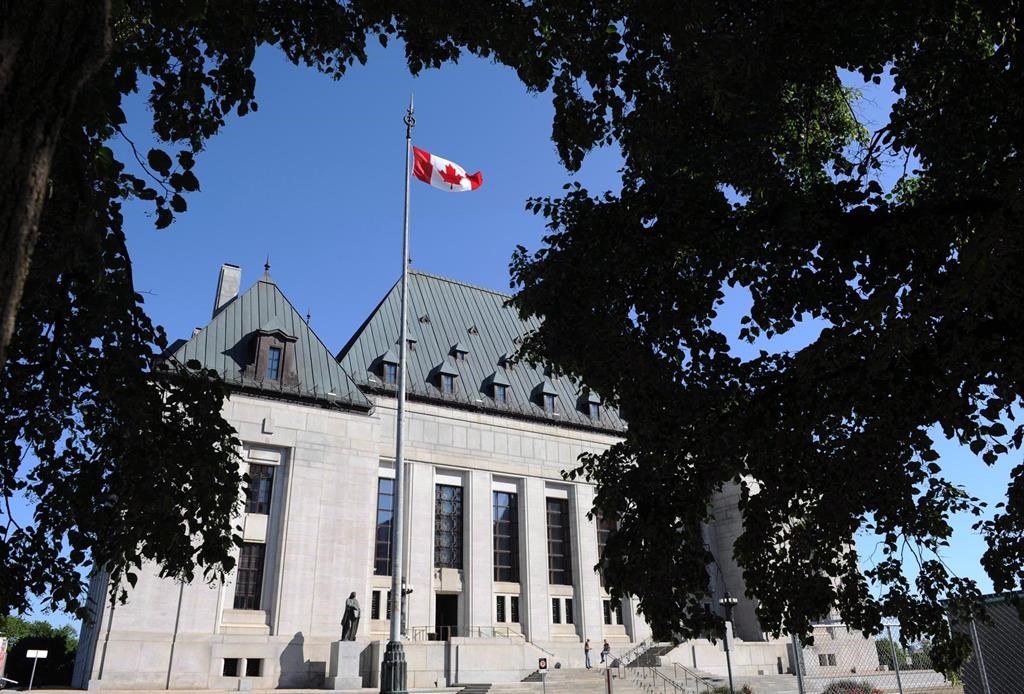Canada’s top court has restored the conviction of a man who argued the rape shield law had prevented him from defending himself properly.

While the court found errors in previous rulings leading to his conviction, it said no miscarriage of justice had occurred.
READ MORE: How much does it cost to be a victim of sexual assault?
The man known as R.V. was convicted of sexually interfering with a 15-year-old girl.
To bolster its case, the Crown introduced evidence she became pregnant at the time of the alleged assault and said she had been a virgin prior to it.
WATCH BELOW: RCMP officer condemned for questioning of alleged sexual assault victim

Lower courts refused to allow R.V. to cross-examine her on other sexual activity that might have accounted for her pregnancy.
Ontario’s Appeal Court ordered a new trial, but the Supreme Court said that was a mistake and convicted R.V.

Get breaking National news
“In this case, the Crown introduced the evidence about the girl’s virginity and pregnancy. R.V. wanted to challenge it. He wanted to ask questions about whether someone else could have made her pregnant. He said if he wasn’t allowed to challenge what she said, he wouldn’t be able to defend himself properly,” said a brief released by the Supreme Court to explain the decision to the public.
“R.V. had to ask a judge whether he was allowed to ask these questions, because they were about sexual history. The judge said R.V. was allowed to ask whether the girl was telling the truth about being a virgin at the time, and what she thought ‘virginity’ meant. But he wasn’t allowed to ask whether anyone else could have made her pregnant.”
That brief is separate from the judicial decision itself but relates the factors and considerations at play.
It also stated that while the majority of justices agreed R.V. should have been allowed to ask the complainant whether anyone else could have made her pregnant, doing so would not have changed the outcome of this case.
Because of that, the court ruled the original conviction should be reinstated.
With files from Global News







Comments